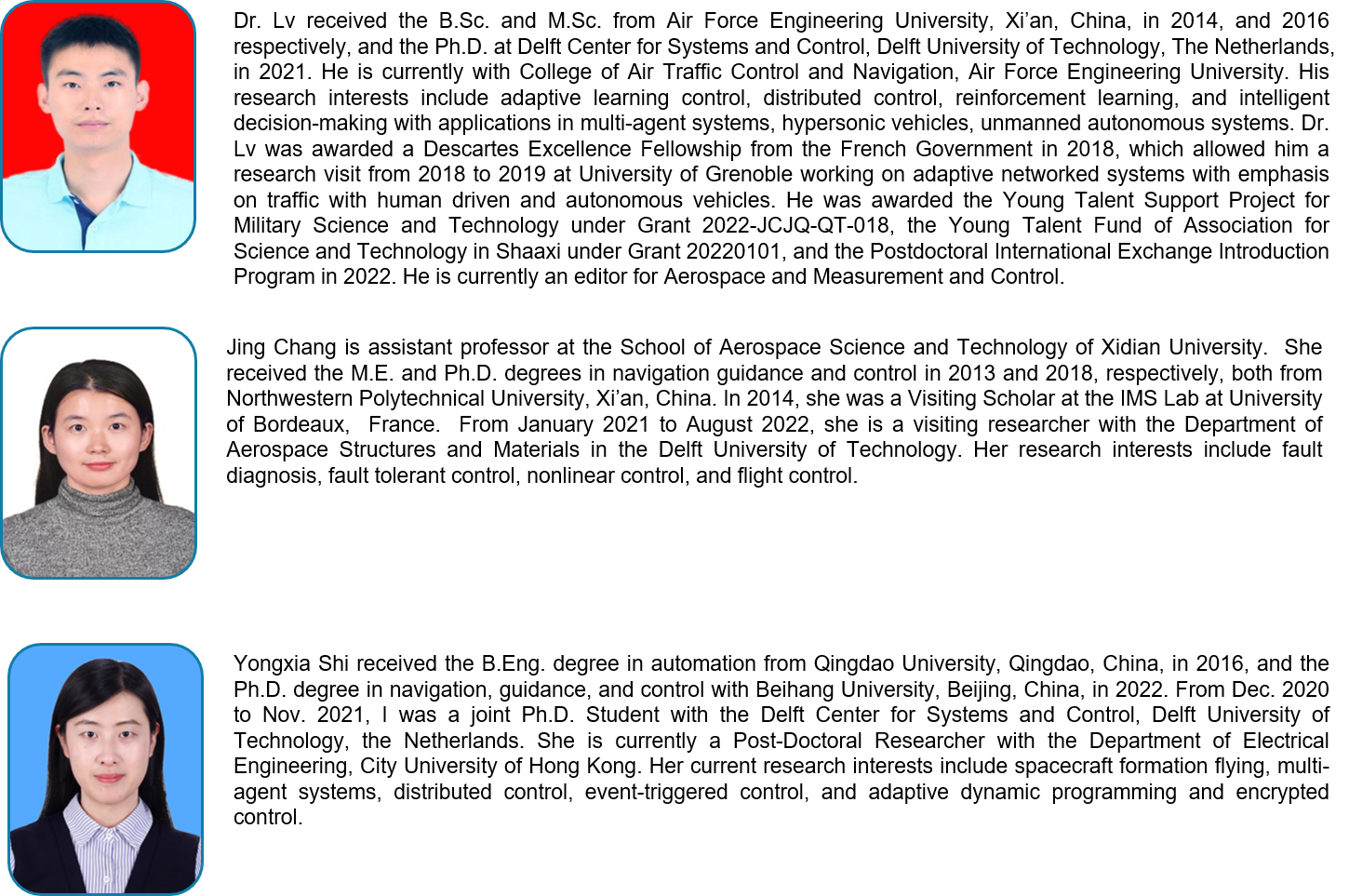- iccarconf@outlook.com
- Ticket to ICCAR 2026
Special Session 3: Autonomous Safety Control in Aerospace Applications
航空航天领域中的自主安全控制
Organizers:
Maolong Lv, Air Force Engineering University, China
Jing Chang, Xidian University, China
Yongxia Shi, City University of Hong Kong, China
Submission Guideline:
Please submit your manuscript via EasyChair http://www.easychair.org/conferences/?conf=iccar2024, please choose Special Session 3: Autonomous Safety Control in Aerospace Applications.

Introduction:
The ability to autonomously operate of an atmospheric or space flight vehicle is crucial for specified flight tasks. However, due to long-term continuous operations in a complex environment, some anomalies are extremely easy to occur in flight vehicles, especially faults in sensors or actuator components. Meanwhile, there usually are motion and physical constraints in aerospace applications, such as collision with obstacles, linear/angular velocity constraints, actuator saturation, limited communication and computation resources, etc. All of these limitations may bring out safety hazards for the autonomous operation of space flight vehicles. To this end, various advanced control methods have been proposed by employing the sliding mode control, barrier Lyapunov function, prescribed performance control, fault-tolerant control, adaptive control and so on. Even though considerable progress has been made on the safety autonomous control of flight vehicles, it is still significant challenging to guarantee the control performance with consideration of complex motion and physical constraints simultaneously. In particular, with the development of intelligence technology, intelligent methods (e.g., reinforcement learning, deep learning, and adaptive dynamic programming) have been used in conjunction with the traditional control methods to enhance the safety, autonomy, and intelligence of flight control systems. The purpose of this proposed invited session is to gather some active researchers in the area of safety autonomous control in aerospace applications in a same room and discuss their most recent research results. These results touch upon both theory and applications.
Topics of interest include, but are not limited to:
Fault-tolerant control and control reconfiguration;
Distributed fault diagnosis and estimation;
Model-based or data-driven diagnosis;
Cooperative control;
adaptive control;
learning-based control;
game theory.